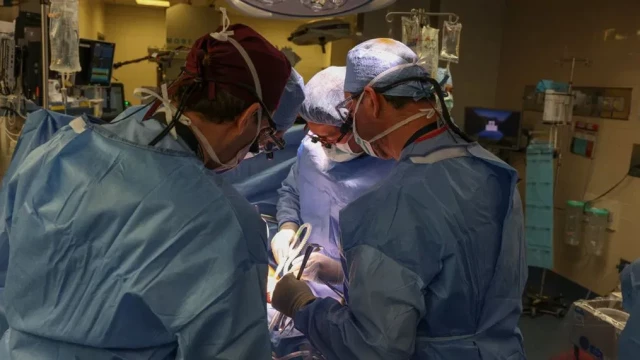Massachusetts General Hospital (MGH) announced a groundbreaking surgery on Thursday, successfully transplanting a genetically-edited pig kidney into a 62-year-old man.
This landmark procedure, conducted by surgeons at the Mass General Transplant Center, represents a significant leap forward in the quest to address the global organ shortage.
MGH CEO Anne Klibanski expressed the team's commitment to pushing medical boundaries, stating, "Nearly seven decades after the first successful kidney transplant, our clinicians have once again demonstrated our commitment to providing innovative treatments and easing the burden of disease for patients worldwide."
The historic operation signifies a major milestone in xenotransplantation, the process of transplanting organs or tissues between different species. This breakthrough holds immense potential as a solution to the critical shortage of donor organs.
The transplanted kidney originated from a pig that underwent a meticulous genetic modification process.
Scientists meticulously removed potentially harmful pig genes and introduced specific human genes to enhance compatibility with the recipient's immune system.
Furthermore, to mitigate any risk of infection, the pig donor's porcine endogenous retroviruses were deactivated.
Early reports indicate the patient is recovering well and is expected to be discharged from the hospital soon.
While long-term monitoring will be crucial, this successful surgery offers a beacon of hope for countless individuals awaiting life-saving organ transplants.




















